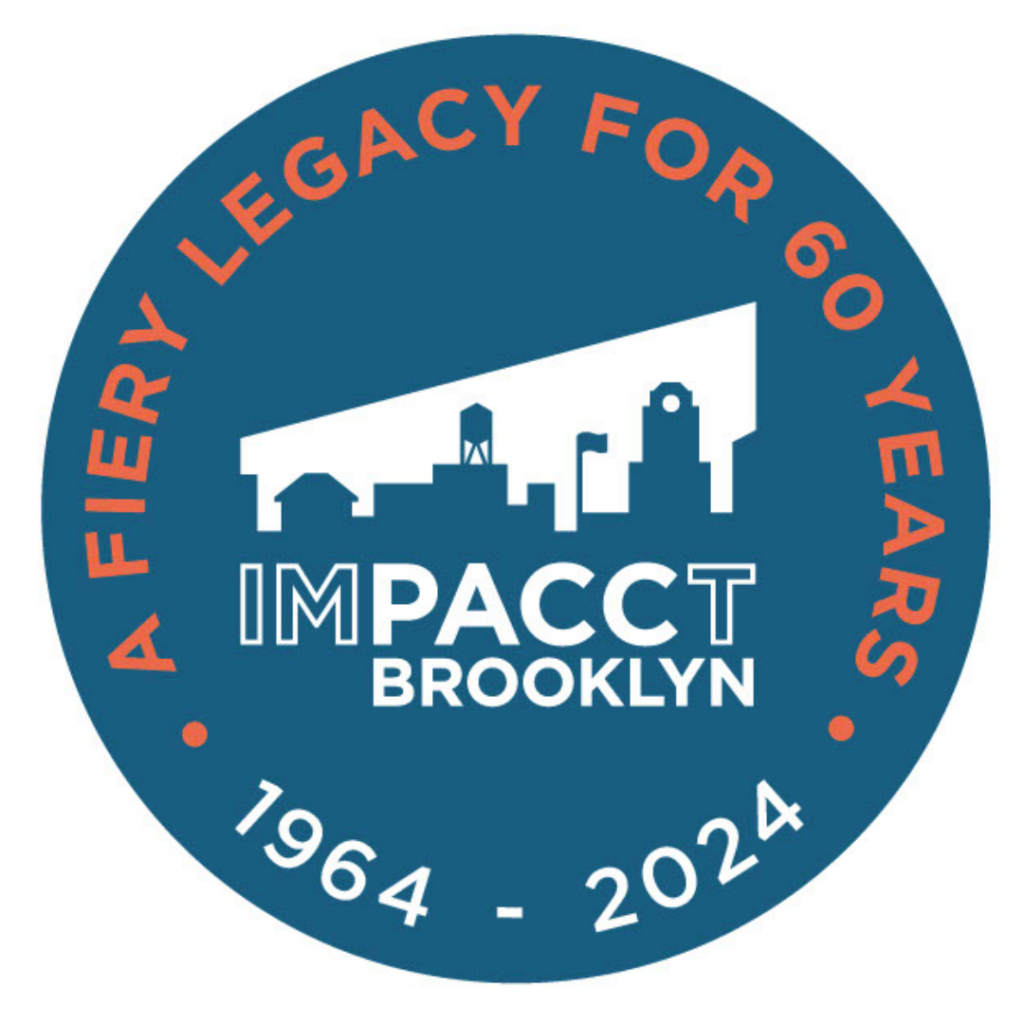
Today is Juneteenth, and the staff of IMPACCT Brooklyn is making time today reflect on the history of peoples of the African Diaspora in the United States. We will join with others that are hosting celebrations.
We applaud the recent proclamations and laws that are being changed to provide justice, including the New York State celebration of Juneteenth and the repeal of 50-A. We also understand that Mr. George Floyd’s death and the disproportionate effects of the COVID-19 pandemic on Black peoples has created a tipping point. We are now experiencing the acceleration of the passing of laws and holidays that have long been championed by members of the Black community. For centuries, members of the Black community have fought along with allies for equity on so many levels in America. It remains the hard work to be continued.
The descendants of slaves in the state of Texas started celebrating Juneteenth in 1866; it became a state holiday in 1980. In 2004, New York State Governor George Pataki proclaimed and signed into law Juneteenth “day of commemoration” as Juneteenth Freedom Day. This week, Governor Cuomo signed an executive order recognizing Juneteenth as a paid holiday for state employees and promised to propose legislation next year making June 19th a permanent state holiday. Although in other countries, including Trinidad, Tobago and Jamaica, August 1st is Emancipation Day and has long been celebrated by our Caribbean brothers and sisters, Junteenth is not a national holiday in the United States of America.
On Friday, June 12, 2020, New York Governor Andrew Cuomo signed the repeal of 50-A into law, and the bill passed the legislature on Tuesday. Up until now, 50-A allowed law enforcement to shield police misconduct records from the public. Advocates have been fighting for the repeal for over a decade.
As a Black, cisgender female, fourth generation American and descendant of Africans that were enslaved, the meaning of Juneteenth takes on a personal importance. It has highlighted that while proclamations are made and bills are passed, it may be years before the laws are formulated, enacted, and enforced. Although Abraham Lincoln called for all slaves in the Confederate States “shall be then, thenceforward and forever free” when he issued the Emancipation Proclamation, effective January 1, 1863, it wasn’t until June 19, 1865, a full 900 days later, when the Union army arrived in Galveston, Texas that the residents of Texas knew that slavery had ended, and hence we celebrate Juneteenth. It’s not about slavery, it’s about freedom.
I applaud the efforts being made at this time by our elected officials. What has been asked for over centuries is now being addressed. As we work towards racial inclusion in America, consideration must be given to all aspects of the law—the legislation, the enforcement and the judicial sections –past, present and future.
-Bernell Grier, Executive Director of IMPACCT Brooklyn



